As you may have read in my previous posts, there is quite some hassle here in Germany acquiring the certifications needed to be allowed and able to get out on a boat and take over the responsibilities of a skipper: So far I´ve done the official boat license (called “Sportbootführerschein” or short SBF – read it here), the Short Range Certificate for VHF radio (SRC – read it here) and the equivalent of the Yachtmaster Coastal (called “Sport-Küstenschifferschein”, or SKS – read it here, here and here).
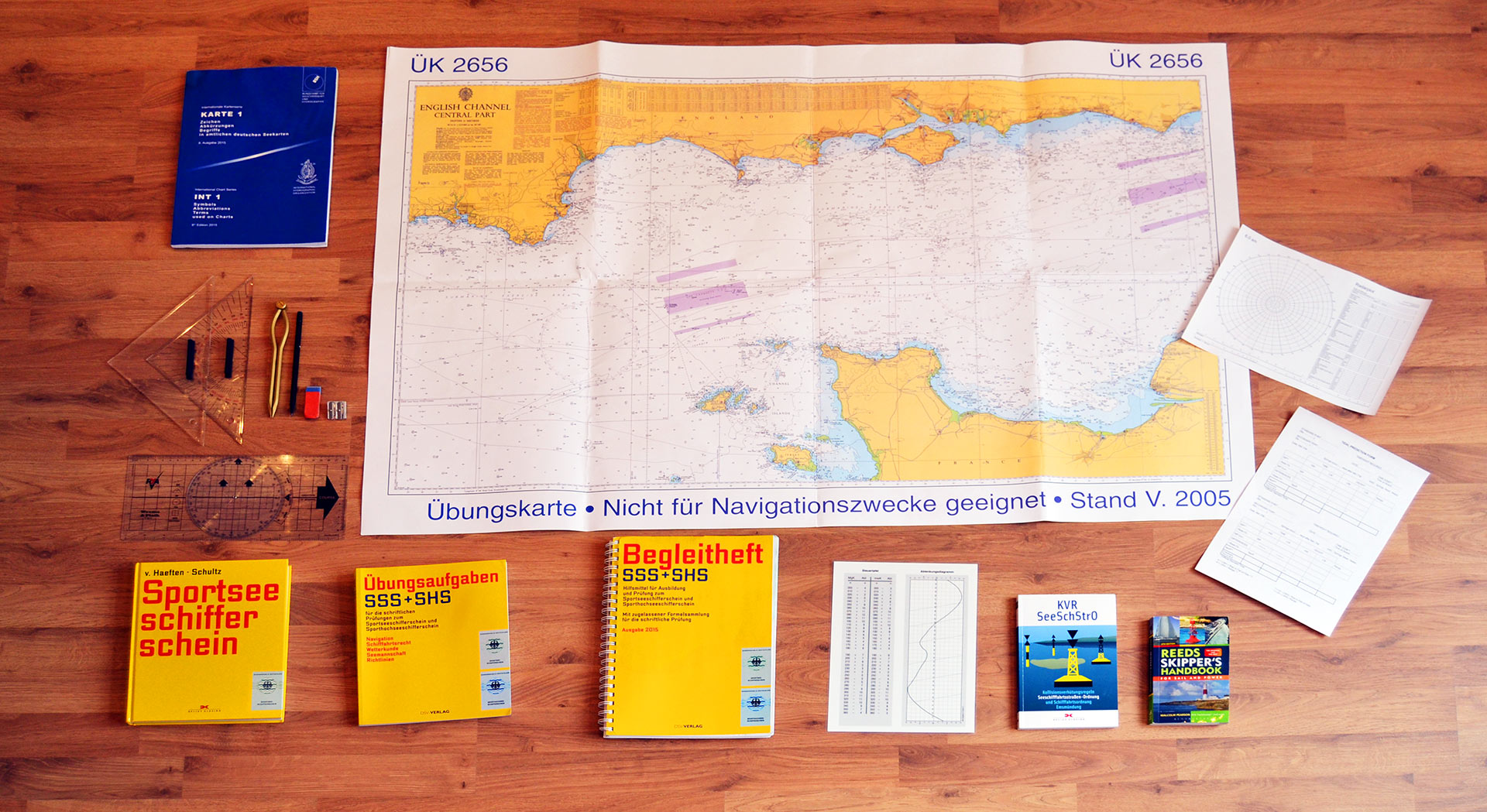
My next target is the German Yachtmaster Offshore-equivalent (we call it the “Sport-Seeschifferschein” – SSS in short) as my last certificate because in getting this a skipper gets another very deep and detailed insight in matters of seafaring. Besides, this certificate is required when you want to commercialize your skills on a yacht up until 15 metres length. And who knows … may be that I need this some time? Truth is that the SSS/Yachtmaster Offshore is one of the harshest certificates to get: From 200 applicants in Germany last year only some 20 passed the hard exams. It´s said that this certificate is a galaxy harder to get that the previous ones and here is what I´ve experienced during my theory-course in the sailing school: I´ve made a logbook.
Loogbook of the Yachtmaster Offshore Theory Class
Day 1, January 1st – “Three painful hours of constant sighing.” What was that? Sitting in class of my favourite sailing school and really being motivated, I looked so much forward at this very day when my Offshore Skipper-class would start at last. Although our teacher kicks off the first session with a repetition of old knowledge from the already passed Coastal Skipper-certification I am shocked of how little I seem to have been able to really internalize! I even cannot read out a proper position from the chart (because the practicing chart of the English Channel has the Prime Meridian in it and I confuse Western with Eastern Longitude. Nice. What the hell is “phi” and “lambda”? We are just 3 people in the class, which is nice, kind of one-on-one education here but it also shows how tough the German SSS really is: Last year out of 200 applicants in all over Germany barely 20 have acquired the certificate. That´s the rumour. So, that means SSS-Skippers are the sailing elite? I absolutely do not feel like this right now.
Day 2, January 16th – “I am not a Hack-Lawyer, for God´s sake!” After doing our homework the last three hours before class starts, I do have a rather positive feeling today: I´ve managed to do the triangular calculations for currents very well (according to our teacher´s memory hook: “Water to water and ground to ground”). Also tide calculations (the old, German style) is going surprisingly well although we didn´t yet had the tide calculation technique according to ATT. Shipping law is – well … reasonably making fun although this won´t ever make it to be my favourite topic of them all. In the class itself we go through the homework and – as expected – current triangulars are fine. I learn that a tide cycle comprises of 4 days spring tide, 3 days average time and 4 days neap tide. But: Why the hell aren´t all secondary ports according to ATT not in UTC? The English are crazy. When it comes to shipping law I hesitate: Do they want to turn me into some kind of “Ben Matlock of the Seas”? Oh dear … no further questions, your honour.
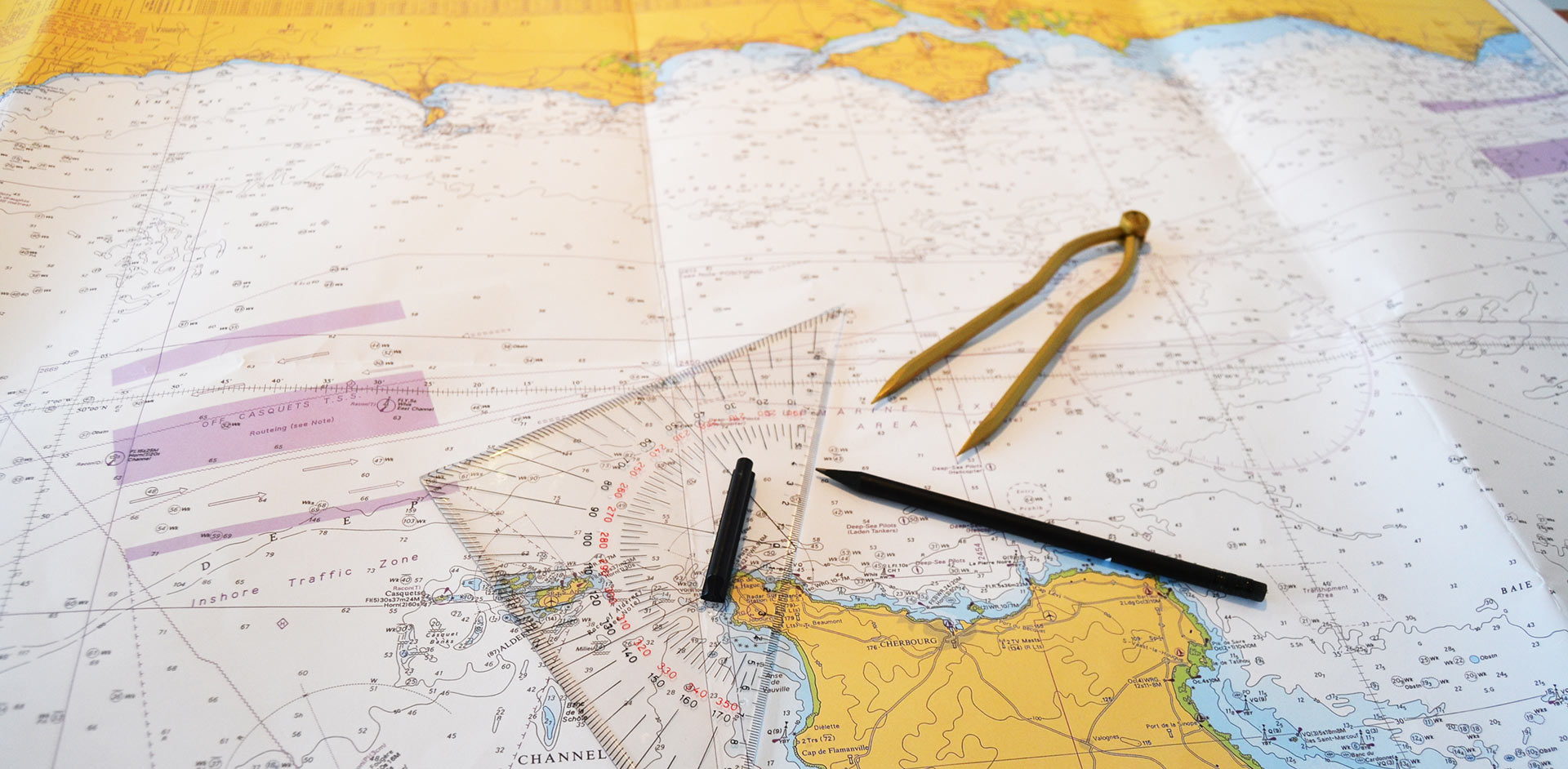
Day 3, January 30iest – “Oh. My. God.” It´s just a few days after returning from the craziness of the Boot boatshow in Duesseldorf and I had absolutely zero time to do anything for the class: no literature studies, no homework, no nothing. I feel awful. I run through the homework anyway just shortly before class starts. One complete examination session of shipping law. For acquiring the certificate the exam consists of four big blocks, law is one of them. In exam there are 120 minutes time to get through the tasks. I manage the block half decent. I fail just curtly, although my absolute field of hate – lights and signals – has been managed quite good by myself. The navigation task (again, 120 minutes time here) is breaking my neck: I have one initial glitch in the current calculation and this error is repeating itself in the course of the whole block. I am lucky and can identify from all of my errors two, one is not explainable. Slight panic creeps up my neck. Later in class our teacher sees it right away: When dead-reckoning over a period of 4 hours I forgot to re-new the tidal forces every new hour, I dead-reckoned for all of them with the first current data. Perfect! Getting the data out of the tidal charts I just looked at “4 hours before Dover” and not “3”, “2” and “1” before Dover for each successing hour. How stupid!
Speaking of dummy: Shipping law has me again. It starts with me doing the wrong homework so I am completely blind when we speak about the task. Anyway, what I am learning today is that in answering these questions it´s not about finding out what would be reasonably to do as a skipper but to just stick to what the rules out of the book say. Don´t imagine yourself being the skipper – imagine yourself being God, looking down on a situation and try to objectively stock to the text of the book. Solely. That´s hard to do. At least for me. Broadside of the day: Collision prevention rules and the German shipping law together with all signals and lights is REALLY fucking you up if you have not just plain and simply internalized the stuff. There is no margin for error at all.
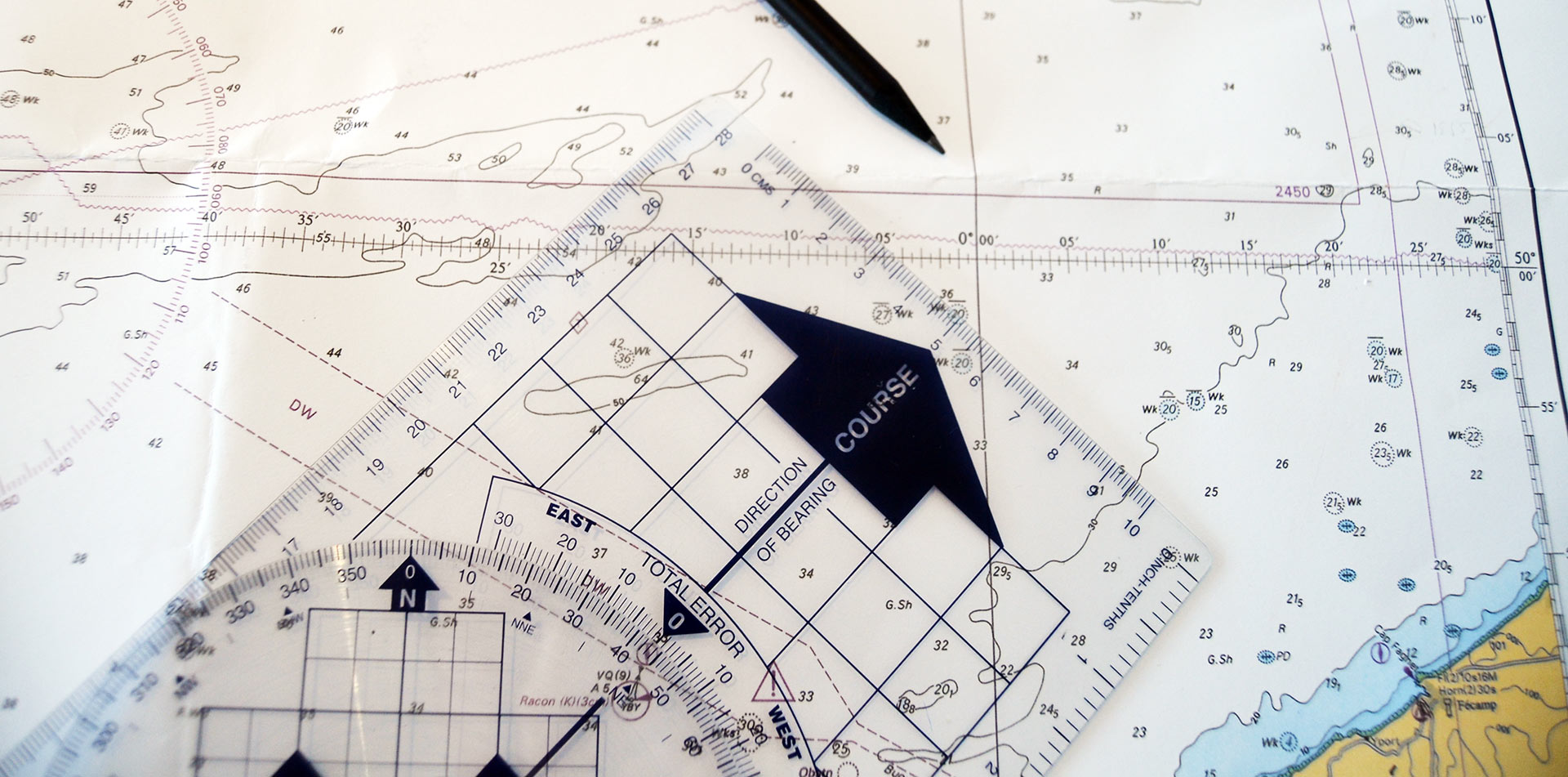
Day 4, February 2nd – “Hope.” Today is my birthday and I really hope that it won´t be another disencouraging day for me. We have a weekend, two full days class ahead of us. First day: Weather. We are happy and surprised to learn that the guest lecturer this time is the former Chief Meteorologist of the German Navy and experienced sailor aboard tall ship “Gorch Fock”. He starts with basic knowledge on highs and lows and weather patterns. I know everything from the past certification classes but he can mediate it with his vast treasure of experience that it is pure joy to sit there and listen. Weather – as long as it is not the internalization of the zillion different types of clouds – won´t be my Achilles´ heel. (But it is)
Afternoon is another guest lecturer, a lady, as introduced by our class teacher, she is “Miss Tide”. Now she smashes a fireworks display of light bulb effects! We learn how to calculate tides by graphic triangulation in tidal curve diagrams. What a beautiful and elegant art this is! I am astonished and elated by the beauty of this technique! That’s why I am here – this is what fascinates me most about sailing: To gather the knowledge of Centuries of seafaring. How much experience and trial and error is within this simple, yet complex and beautiful method. For the first time of the whole class I am really enthusiastic and can finally draw some hope for myself in maybe being able to pass the exam.
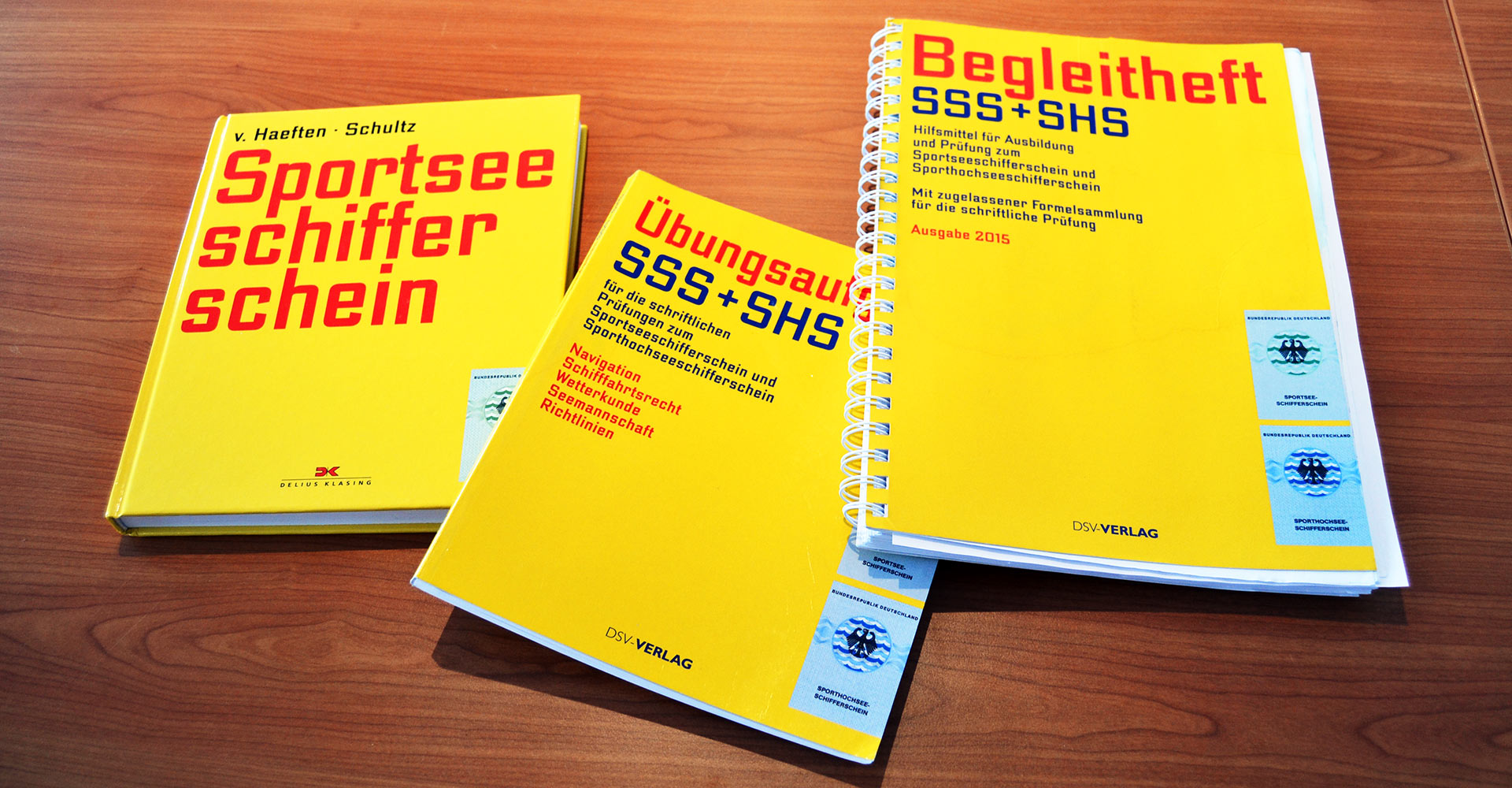
Day 5, February 2nd – “Absolute Brain Twist” Tidal calculations. The whole day. We started considerably easy but after taking on secondary ports the fun started. Although again this is a very beautiful system to graphically solving the tasks by taking out tidal date from tidal curves. But we are in a way absolutely shocked and stunned about the fact that this is so absolutely complex with errors lurking behind each and every corner here. It seems so easy to make things wrong yet it seems so hard to get through it without any problem.
The practicing tasks we are running through are mastered by me considerably neatly – after having some trouble to get started, I manage to solve all of them in the end. But all too often some knots in my brain prevent me from mastering this all without help needed. It seems that there is one knot in my brain for each and every (!) task given. Now I realize why they suggest to start the examination day with the navigation part: It´s the most complex with the most traps and the most potential for gathering points.
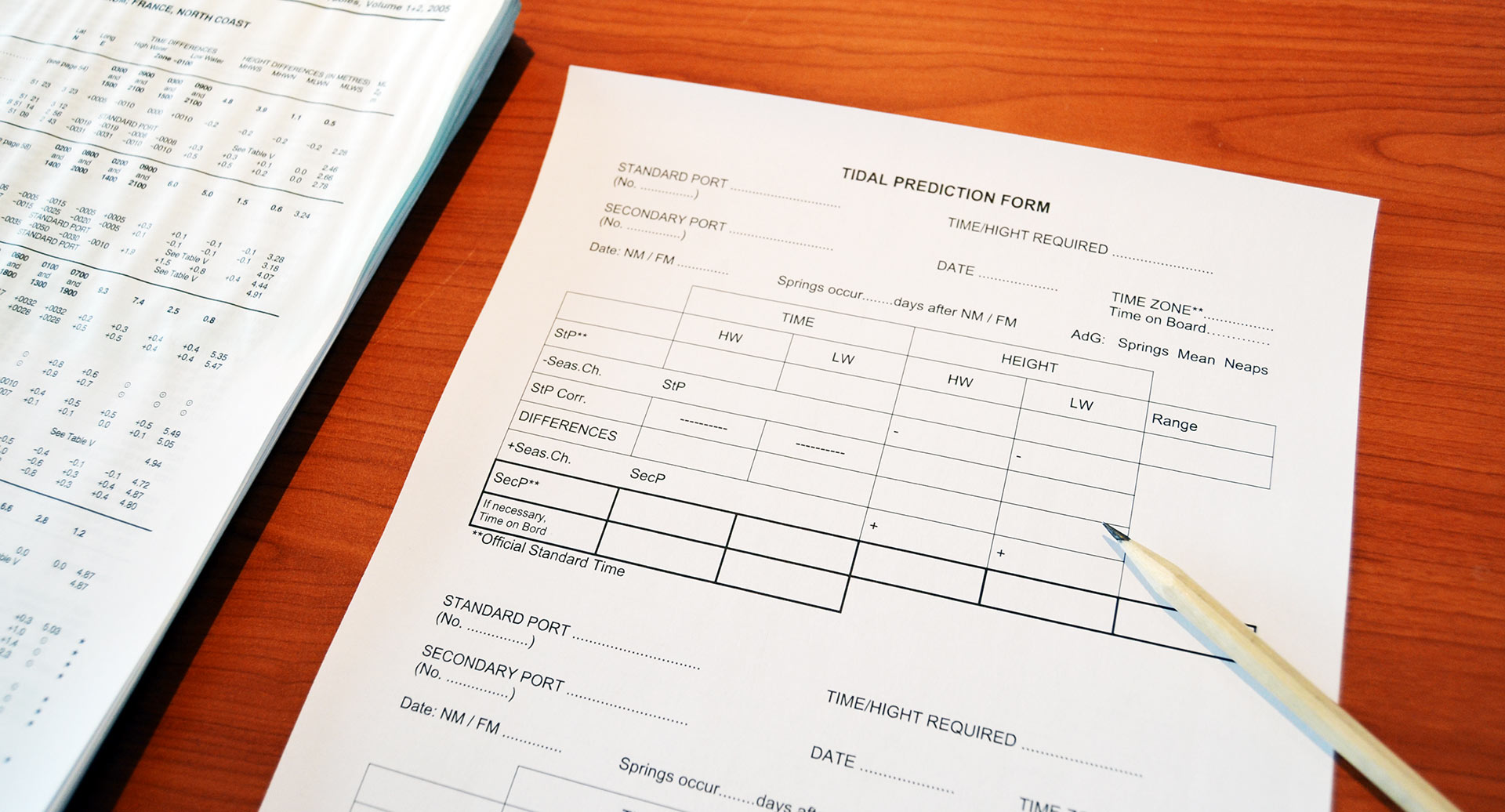
Days 6 and 7, February 10th and 11th – “Missed it.” Full of grief but I have to skip this intensive course weekend due to a job event. I miss the rest of the weather-class (assumably the more interesting and the more important part) and the whole block electronic navigation and Radar. That´s not a good harbinger and I hope I can make up this leeway.
Anyway, on the other hand I plucked up courage and sent in my application for being accepted for the theory exam. The date is set: July 17th. That´s still 5 months to go and should be enough time to dive deep, deep, deep into the matter. I hope so, at least. I also took one whole week off for learning vacation and I am planning to lock myself away and for power learning. Furthermore I hope that somebody from my class will have been passing the exam to maybe help me getting focused. In any case, filling in the application form makes me happy: Where 700 miles of sailing are requested for being accepted to the class, I can write down “2.000”.
Day 8, February 13th – “Capsizing.” Today is a wonderful day in our Offshore Skipper class. Well, the word “wonderful” may be inappropriate as the topic is stability. This is exemplified by our teacher with the help of referring to the serious maritime accident of our sailing school´s own yacht. Some years ago the boat capsized at Figuera da Foz, two people died in the course of the action. Nevertheless, the topic is of private interest as I love yacht design and the theory behind naval architecture so that I already have a fair amount of knowledge here. Things like form stability, dynamic stability or the interpretation of a stability curve are not posing any challenge to me. It is something that really makes fun, talking about properties of a hull design and discussing yacht design principles and which modern and classic approaches to seaworthiness exist. I leave class very enthused and I am sure, that this particular field might get me full points in the exam.
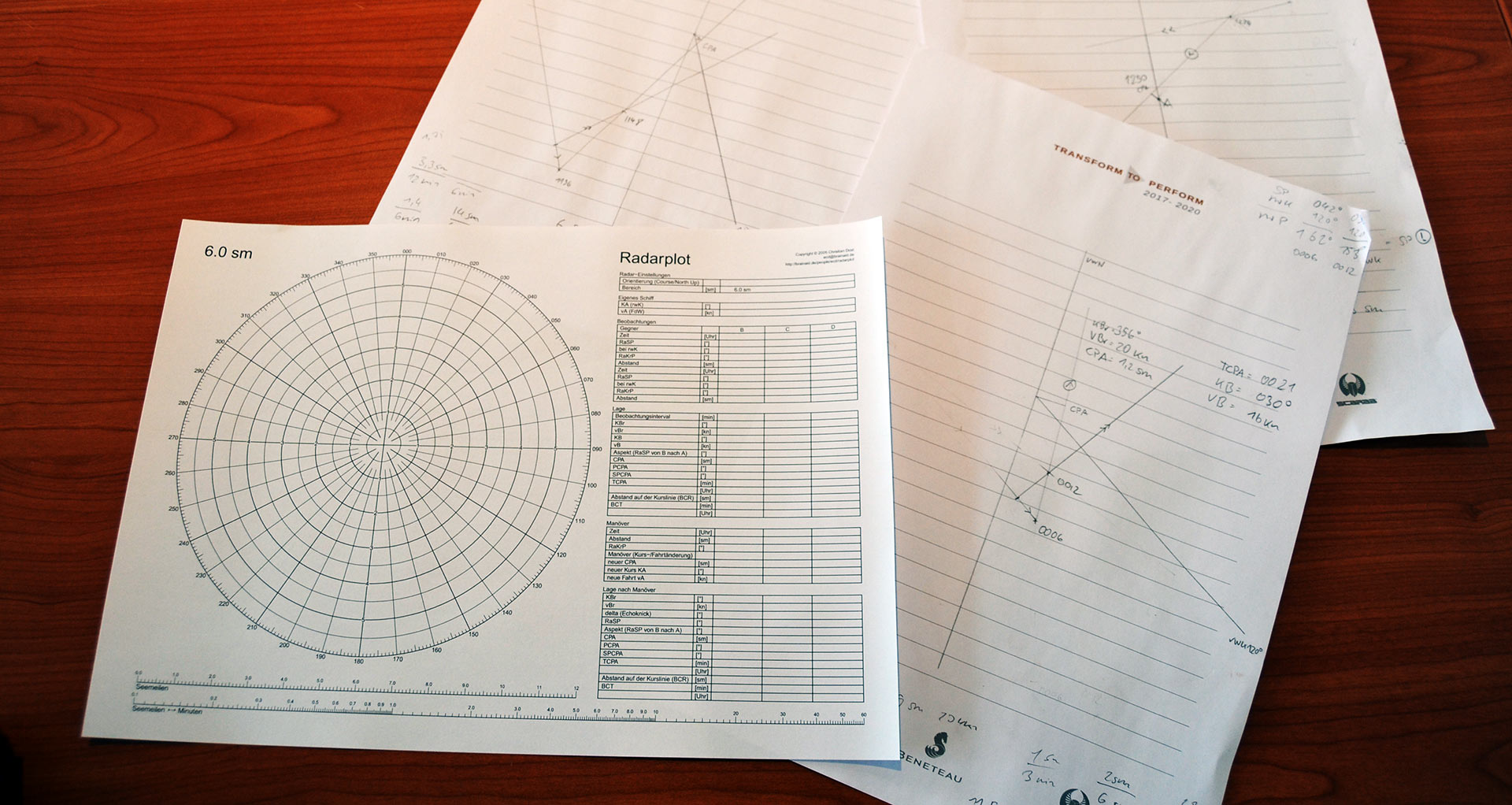
Day 9, February 20st – “Knots in our brains. Again.” Radar-plotting is our topic today. That´s simple vector graphics. According to our teacher, of course. We learn to divide between relative and absolute movement of a Rader-target. That is kind of a brain twist to abstract the real situation from the situation seen on the Radar screen. But with some calming oneself down and thinking it over (and sketching around a little) it´s possible. But “calming oneself down” is tricky: We have a fellow pupil in our course who is constantly talking to himself. That´s driving me crazy! I note to myself to be prepared for examination day and have a fresh package of ear plugs in my pockets.
I myself go crazy when it comes to TCPA, VBr and VB – although the given times of the bearing are dividable by 6 and 60 to make calculating speed easy, the simple triangulation makes all of our heads turn red and exhale smoke. “That´s simple rule of three!”, our teacher desperately repeats, but we seem to have a huge knot in our brains all at once today. Best hint of the day: Do always convert all given data to “North up”. I will comply.
Failing and passing the Offshore Skipper exam
The two full days I had to skip will be repeated next month. Advanced weather and electronic navigation. That´s some two weeks to go. And then … it´s learning, learning, learning. Attending a class won´t teach you all the stuff needed to pass the skipper exam. It is merely a indicator of what is of interest. It will show you how to do things, but you have to practice and learn. A lot! The level from Coastal Skipper to Offshore Skipper is a whole galaxy. It´s more complex, it´s a vast field of special knowledge needed. The questions in the exam are more implicit, you have to think by your own instead of just resolving tasks. It´s a huge undertaking, for sure.
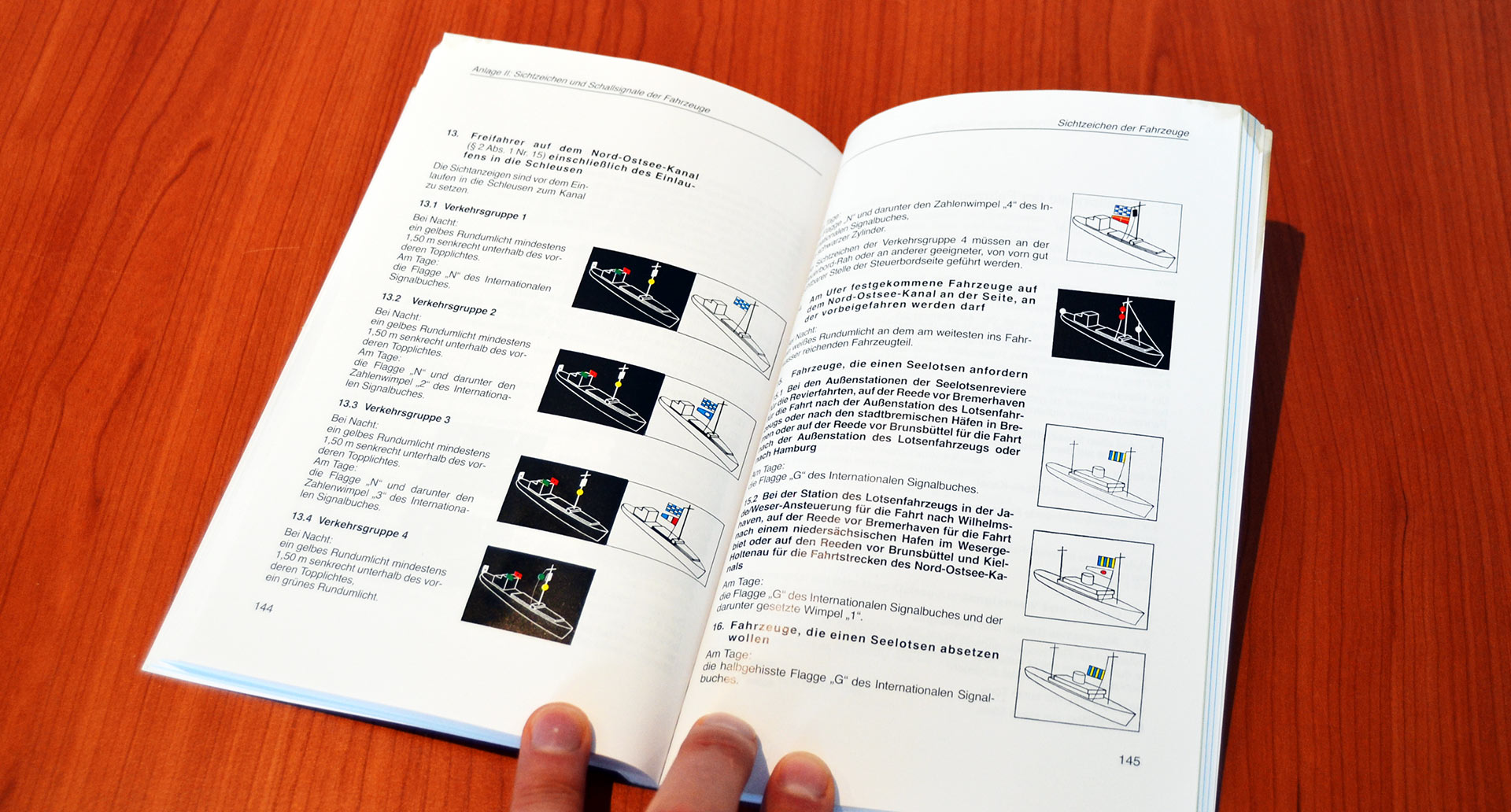
March 3rd – I call Bernd, a fellow student of my class. He was attending exam last weekend. He delivers a first-hand report of the examination. He says, it was very hard. Time was the prime problem. Solving the tasks took him no less that 5 minutes to closing time. Examiners are painstakingly keeping watch that no one will take more time than officially granted. He says it´s a constructive but fairly stressed atmosphere. He as well has locked himself away for learning the stuff one week before the examination day. But he stresses that this isn´t enough: “Learn as much and as frequent as you can. It´s huge!” After completing all four big blocks in one 8-hour-exam on Saturday he had to come forward to the examination committee on Sunday. Oral re-examination. “Tasks seemed even a level up in this one”, he says. But in the end, with a margin but surely, he passed it. I am very happy for him, well done my friend!
And even more anxious for myself in getting my ass up and my head stuffed to the books. Time to seriously start my preparation now!
You may also be interested in reading the following articles:
What makes a good skipper? Part 1 and 2
First time Skipper
Interview with Sir Robin Knox-Johnston
